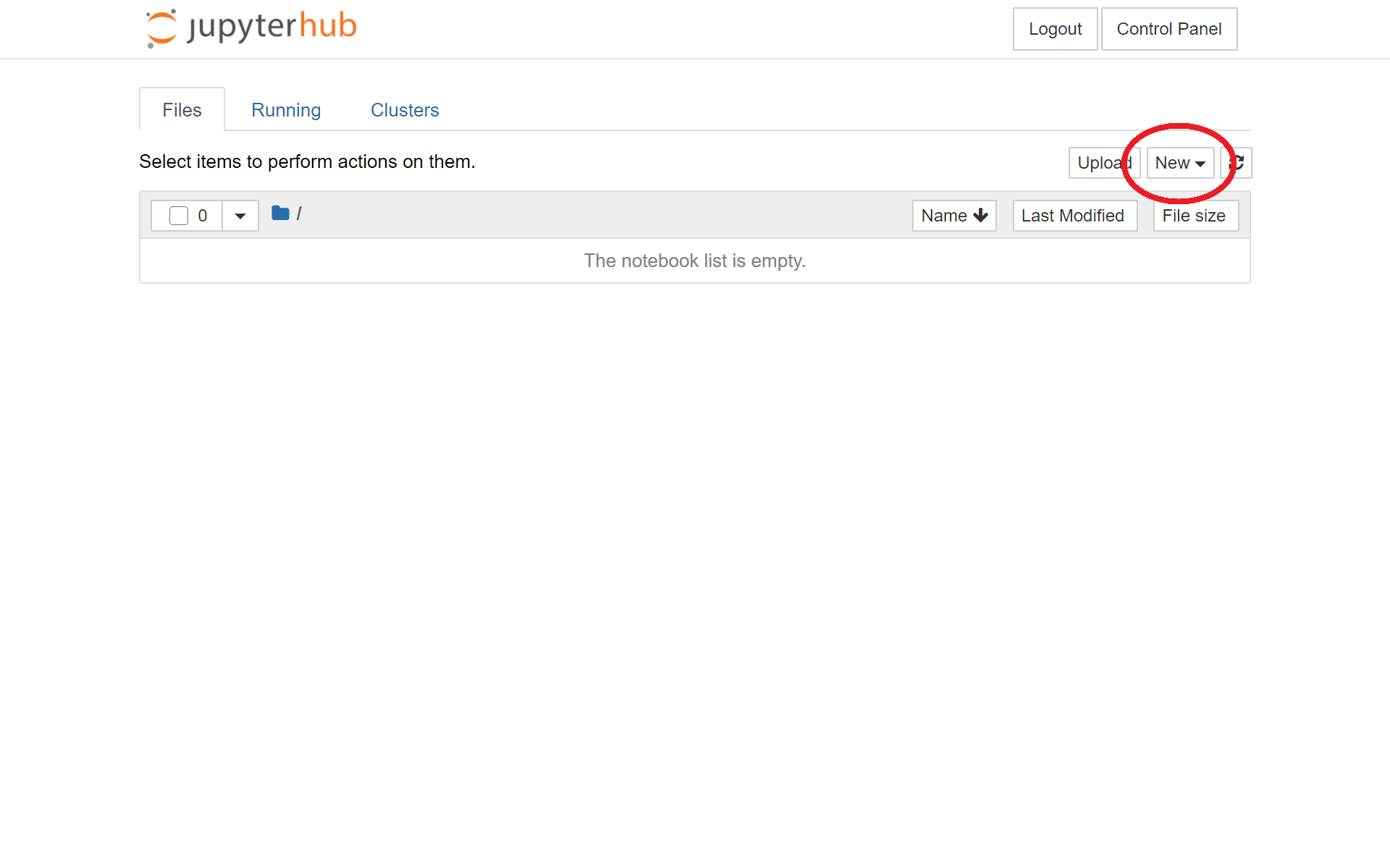Setup¶
Getting Started¶
First we need to log-on to the server: https://rss.jupyterhub.bath.ac.uk, you should be redirected to use your University account via the Microsoft web login. This should start a jupyterhub service running on the server and return you to a page that looks like the image below. You should see a notebook called Welcome.html click on this and follow the instructions and link to set up today's intro-testing lesson.
Now go back to your jupyter homepage and open the folder intro-testing and you can click on new and Python 3 to launch a new Jupyter notebook or terminal to start a shell session. Either from a terminal or the new drop down, create a folder my_testing inside the folder intro-testing.
